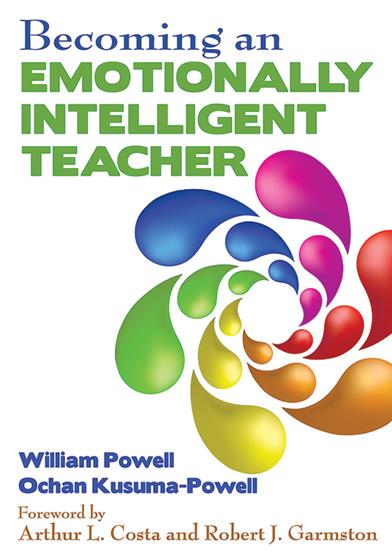Description
"I found myself saying 'Amen!' continuously as point after point was right on target with my experience and perspective. The authors present and thoroughly discuss such vital teacher attributes as empathy, humor, relationships, reflection, self-discovery, self-awareness, and motivation. This book would be an excellent focus for a faculty on professional development days."
—Brinton W. Woodward, Jr., Director
Commission on American and International Schools Abroad
What kind of teacher are YOU?
Are you an emotionally intelligent teacher who engages your students in learning? Because teaching behaviors and personalities can affect student achievement, teachers who develop their emotional awareness and interpersonal skills are better able to manage their classrooms and promote student success.
Based on Daniel Goleman's five components of emotional intelligence, this guide shows how self-awareness, self-regulation, motivation, social awareness, and relationship management can help teachers increase their effectiveness in the classroom. The authors provide research, case studies, and essential tools that help teachers:
- Understand how their conscious and unconscious behaviors affect the learning environment
- Refine their verbal and nonverbal communication skills
- Manage their feelings and frustrations
- Interpret student behaviors, developing insight into how students perceive teachers
- Hone their presentation skills
Becoming an Emotionally Intelligent Teacher includes practical activities and exercises that are perfect for enhancing your emotional intelligence independently or as part of a professional development opportunity.
Key features
- Focuses on teaching as an interpretive activity and demonstrates how the most effective teachers are those who can swiftly and accurately interpret student emotions
- Illustrates how conscious and unconscious teacher behavior, including verbal and non-verbal behaviors, and displays of emotion, dispositions and moods, has an impact on the affective climate in the classroom and on student success
- Includes a series of practical activities and exercises in each chapter that help teachers and staff developers facilitate professional development in the area of emotional intelligence
- Provides coverage of the heightened importance of teacher emotional intelligence for differentiating instruction and working with culturally diverse student populations



